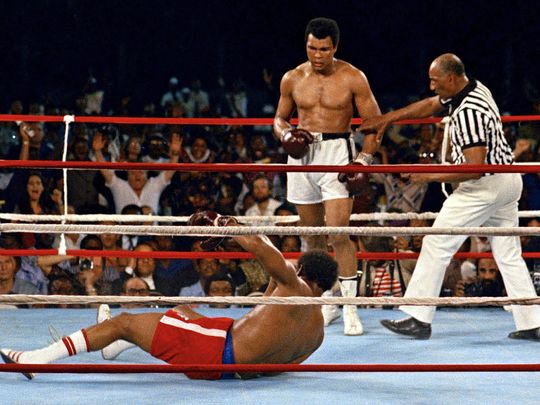Successful Nonprofit Arts Organizations, Like Successful Buildings, Depend on Successful Hierarchies
Level One:
Bricklayers. Carpenters. Stagehands. Electricians. Actors. Musicians. Painters. Singers. Writers.
Easy to find hacks. Difficult to find experts. Project-based.
Level Two:
Foremen. Department heads. Designers. Curators. Musical directors.
Small universe of successful ones. More skills required. Still project-based. Work toward a larger goal than Level One, namely a finished piece. Excellent collaboration skills.
Level Three:
Contractors. Directors.
Smaller universe still. Hire and manage Level One and Two (no requirement to perform at their skill level). Work toward a slightly larger picture, although still project based.
Level Four:
Architects. Executive/Artistic/General/Producing Directors.
Scarce universe of specialists. Determine “what.” Hire Level Three – several Level Threes, in fact. Understand projects, themes, and cohesion.
Level Five:
Owners. Boards.
Tiny, zealous universe. Hire Level Four. Determine “how.” Has personal stake.
Level Six:
The Community. The Mission.
Top of the hierarchy. Determines “why.”
Self-Absorbed Executive Search Firms: You’re Lovely, You’re Talented, You’re Dreamy. But Tact is Not Among Your Strengths.
On behalf of all candidates, to executive search firms:
“Thank you so much for your 3 [hour-long] phone interviews. I presented 8 tremendously qualified candidates to the client and unfortunately, you were not selected. But your loss is [company’s] gain. I’ll keep your info on file and contact you if something comes up.”
We may like you, but it’s not why we applied to that job you’re representing. Your client’s happiness with you means nothing to us.
One hour would have been plenty, not three.
A simple “no, thanks” is more palatable than “didn’t I do a good job?”
Please don’t insult us with passive-aggressive jibber-jabber – we know you’re not going to contact us unless we apply to another client of yours.
And please don’t tell us about other candidates. If we’re not among them, we really don’t care.
Transformational Persuasion: Muhammad Ali, George Foreman, Donald Trump, Hillary Clinton, and Why It Matters – Especially When You’re Running an Arts Organization
Muhammad Ali died last week. A quote from a Zairian in “When We Were Kings.”
“George Foreman? We had heard he was a world champion.
We thought he was white, then we realized he was black, like Ali….
Ali said [about Foreman], you’re the out-of-towner here.”
Nonprofit leaders that manage organizations, programs, and people well can be quite successful. But not transformational. Transformational leaders effortlessly persuade with passion about the mission, not the statistics. Their material requires no script, just practice to remove the “ums” and “uhs.”
Trump, for example, vigorously (and effortlessly) transforms experienced opponents into “out-of-towners.” Clinton relies on effective policy, experience, and “being right.”
Passion KOs policy every time. Ask George Foreman.
Doesn’t your arts organization’s constituency deserve the most transformative experience you can offer? Or do you settle for production excellence and competence?
Special 2016 “Alan Harrison’s Birthday” Edition: Pack Up the Babies and Grab the Old Ladies – And an Easy-To-Fulfill Wish List

I was born on May 14. Conceived on a hot August night. Neil Diamond would’ve been proud. He was old enough to have a kid then, so…who knows? Brother Love? Are you my papa?
From him, I want flowers.
From you, I want (this is your cue):
- A 137-word card. ( <–Yes, that’s a link.)
- Share your favorite 137 Words post with your social network (that’s “share,” not “like”).
- To join a great company with a great mission. In Seattle.
- Health for The Kid.
- Guidance for The Kid.
- The love of my life to be happy, fulfilled, and curious. You know who you are.
- The ability for you to guide your favorite nonprofit to safety, security, and success.
- Brilliantly measurable missions, better than you believe you’re capable of.
- Complete, successful execution of those brilliant new missions.
- Pie, not cake.
Nonprofit Arts Executives: After the Ask (for anything, actually), It’s Fast “Yes,” Slow “No”… Try a Slow “Yes” Instead
If you don’t hear right away, it’s probably “no.”
That goes for asks, offers, hiring, and anything else you require.
And that goes for you, too, when your stakeholders ask, offer, hire, and anything else they may require.
Reflection is the predictable path toward rationalization to the “no.” This is why the phrase “upon reflection” is almost always followed by a version of “we’ve decided not to change.” After all, as a rule, it’s easier not to change than to take a risk.
Many arts charity executives preach the glory of “managed risk” (an oxymoron, of sorts) and value fiscal responsibility above social impact. To be clear, social impact is central to the success of the mission; fiscal responsibility is a valuable business practice.
If “yes” leads to greater impact, then stop saying “no”… especially upon reflection.
The Paradox of Simplicity: Success Begins with Better, Not More
There’s a saying that every weapon that’s been invented has been used. Or will be.
Similarly, every technological advance of the last 30 years has been used. Or will be.
More avenues of communication. More personalized offers. More database data. More news. More marketing. More music. More art. More words.
Not “better.” “More.”
This is not code for “I’m old and yearn for a simpler time.” I’m not and I don’t. What I yearn for is a better time.
Regardless of how many ways key information is dispersed, some folks just don’t consume it. And that’s on you.
I should know. You may be engaging with this post (and thank you), but others who could, don’t. And that’s on me.
A blown basketball pass is the passer’s fault. But a bad pass isn’t solved with throwing more basketballs.
Artists and Non-Offensiveness: The Tyranny of Over-Sensitivity, Feelings, and Participation Trophies

There’s a troubling trend. There’s an absurd unwillingness to offend that seems pervasive among arts creators.
Not that creators are creating “Pleasant Art,” per se. Writers and artists are creating lots of work that is designed to make audiences uncomfortable. Which is good. The work may be about single issues and not terribly complex, but it’s good.
However, there are too many artists raised in atmospheres where everyone wins, even when they lose. In the name of inclusion and self-esteem, they live in a world where, like toddlers, “feeling bad” is simply unacceptable.
They believe they’re special.
To these artists:
- You are not special.
- You do not deserve success.
- Sometimes you lose.
It’s what you do with that information that defines you.
If you believe that nobody should ever have hurt feelings, you’re not doing your job.
Leadership Issues: Flop Sweat, Board Meetings, and When You Lose the Room

Inevitably, there are moments where analysis disconnects with sentiment. You plan by yourself and generate work for your staff. Your staff objects. You have misread the room and caused great resentment. They think you’re a nut.
You’re in a big job interview. The interviewers say they want to “have a conversation,” but instead read from a pre-chosen list of questions. You try to converse. They bridle, citing “fairness.”
Your meetings with the board leave you rolling your eyes…and leave them rolling their eyes as well. You think they don’t understand the problem. They’re sure you don’t.
When you lead by pronouncement rather than by consensus; when you define interviews as interrogations; when you perceive meetings with superiors as continual performance evaluations – these are your issues, not theirs. That anxious sweat on your neck is on you.
Arts Organizations: 137th Post, 137 Thanks, and 137 (of Other People’s) Words That Guide Inspiring Leaders
“We must reject the idea — well-intentioned, but dead wrong – that the primary path to greatness in the social sectors is to become “more like a business.” Most businesses…fall somewhere between mediocre and good.” (Collins)
“If a man does not keep pace with his companions, perhaps it is because he hears a different drummer. Let him step to the music which he hears, however measured or far away.” (Thoreau)
“People don’t buy WHAT you do, they buy WHY you do it.” (Sinek)
“When they say things like, we’re going to do this by the book, you have to ask, what book? Because it would make a big difference if it was Dostoevsky or, you know, ‘Ivanhoe.'” (Anderson)
“‘To be is to do.’ (Socrates) ‘To do is to be.’ (Sartre) ‘Do be do be do.’ (Sinatra)” [Vonnegut compilation]
Face-palms in the arts world: Oh, somewhere in this favored land the sun is shining bright; the band is playing somewhere, and somewhere hearts are light

Somewhere…
- A managing director is face-palming because the budget draft is still a departmental wish list;
- A marketing director is face-palming because the artistic director decided that he knew more about marketing than the marketing director;
- A development director is face-palming because the board chair has fashioned a multi-million dollar “capital” campaign (actually, a “get-out-of-debt” campaign) with no feasibility study, no regard to the annual development campaign, and no accountability to anyone else;
- An artistic director is face-palming because the plays she wants to do don’t jibe with the mission of the company;
- A board member is face-palming because every meeting is about reporting, money, by-laws, and the gala;
And somewhere, performing arts audiences and constituents are collectively face-palming, hoping against hope that the arts folks in their region remember that for them, it’s about the art.
Nonprofit Arts Season Planning: Remember 2 Things

Thing One: Plan your programming based on mission, specificity, style, and audience orientation. That last bit is the most important. Just like the movement toward donor-centric development activity (“What do you want?”) has proven more successful than self-facing activity (“Here’s what we offer.”), audience-oriented experiences that reflect an organization’s expertise (“This is what we’re famous for.”) have proven more successful than vanity programming (“I like this and you must, too.”).
Thing Two: “Seasons” are an artificial construct. In the arts, audiences don’t really care. (In sports, they do, because championships constitute the end of a season.) The construct helps to create a small clustering of performances or exhibitions for fans to purchase as a marketing tool. Programming toward a seasonal “arc” is an imprudent and arrogant exercise that implies your attendees don’t patronize any other arts organization.





